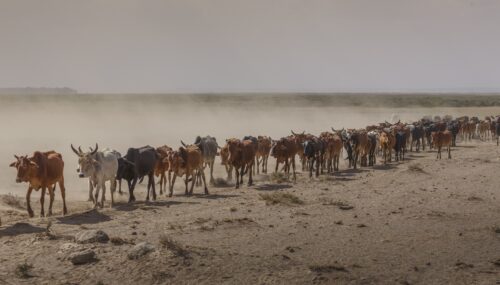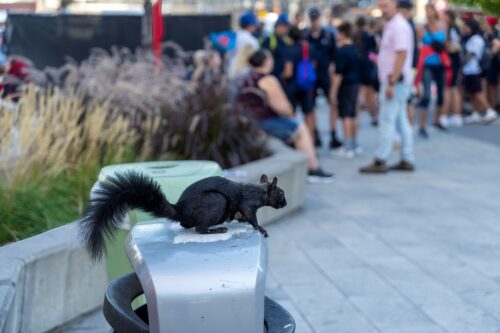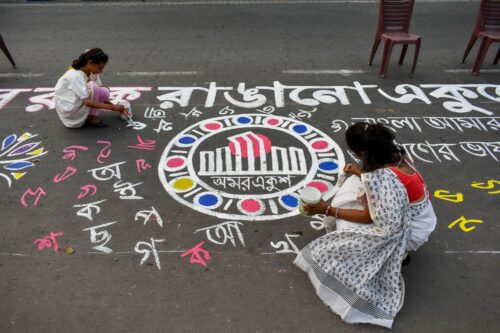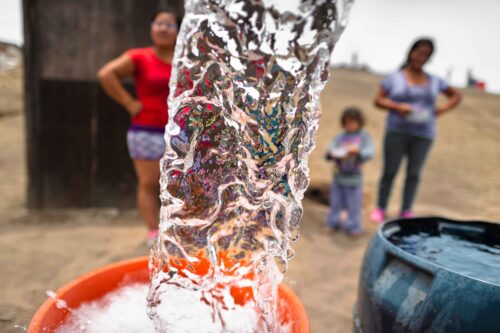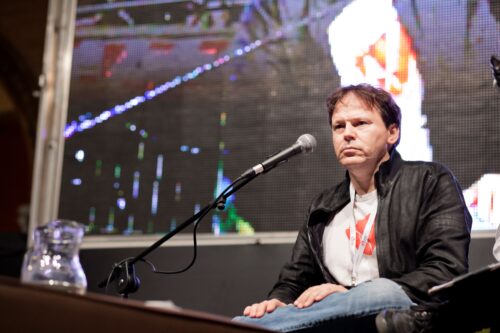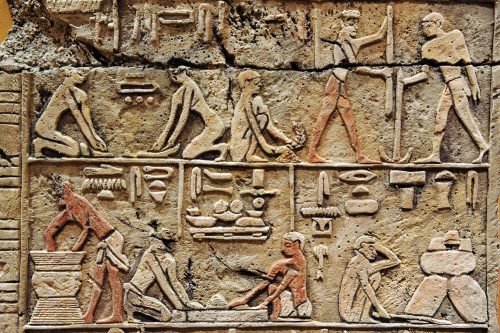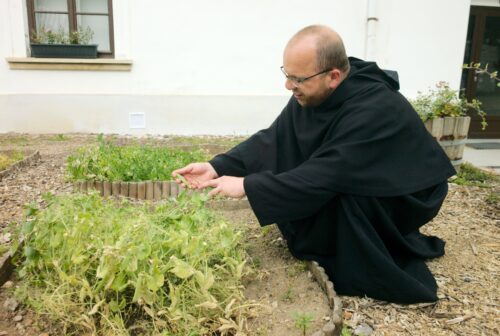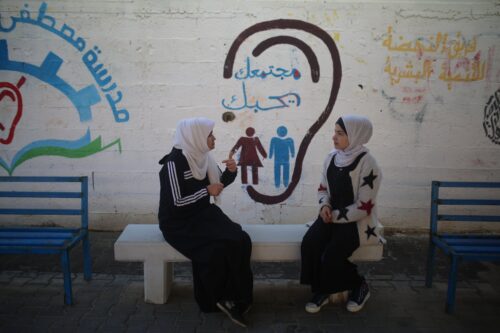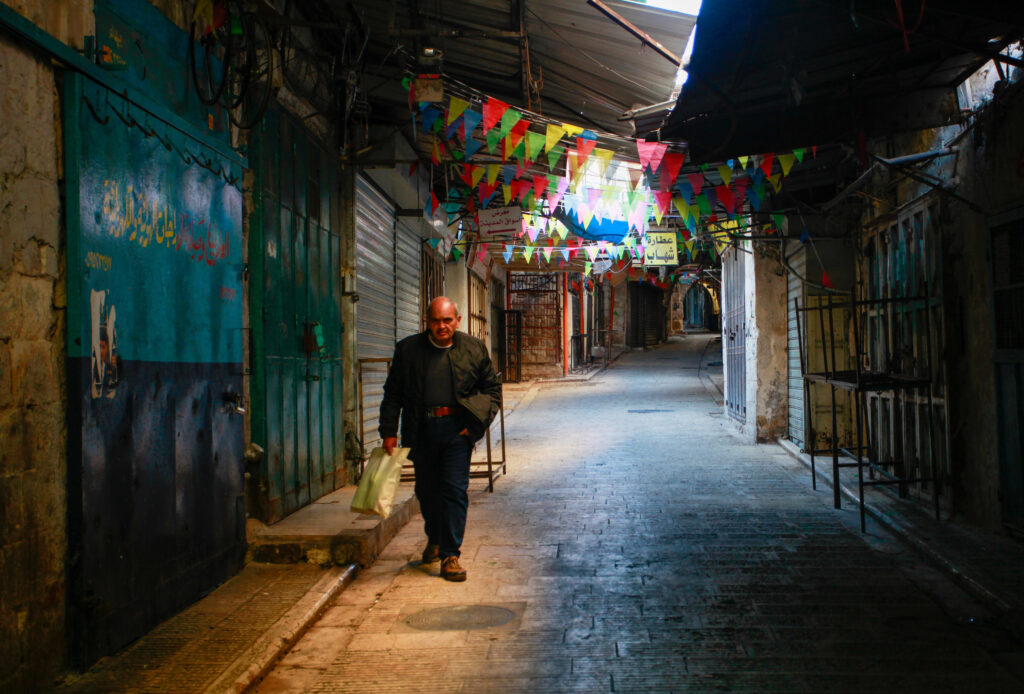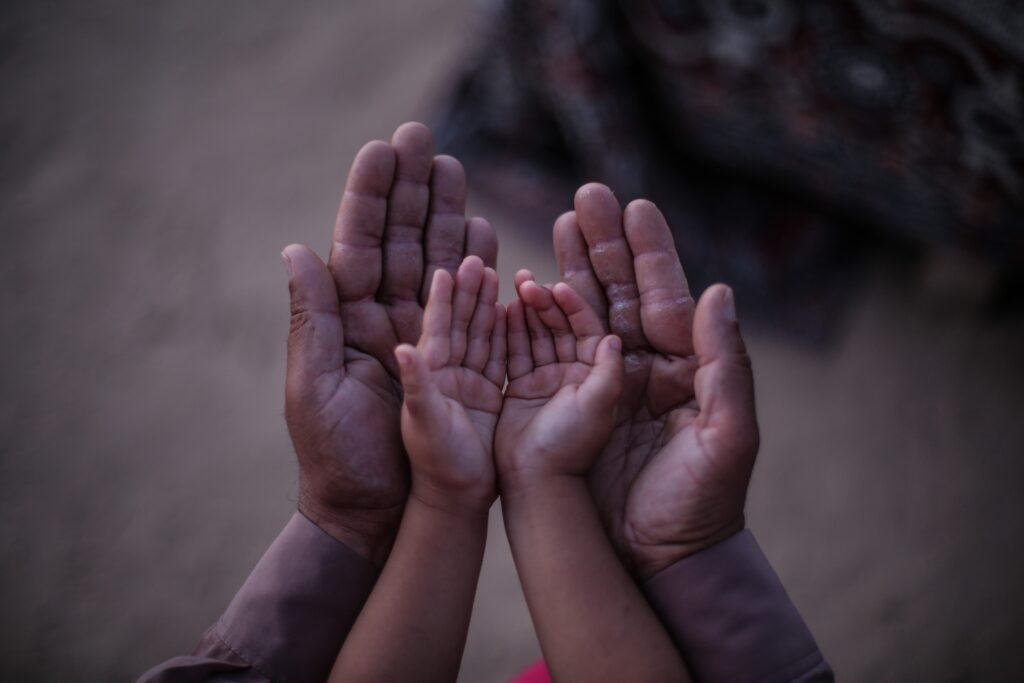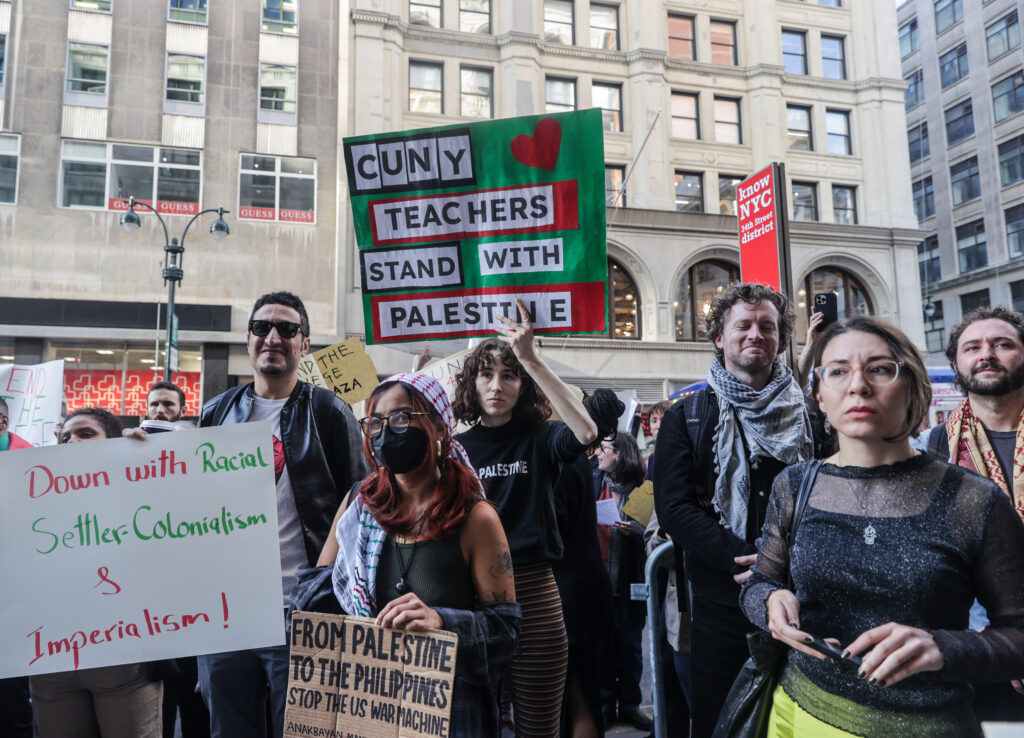Anthropologists on Palestine
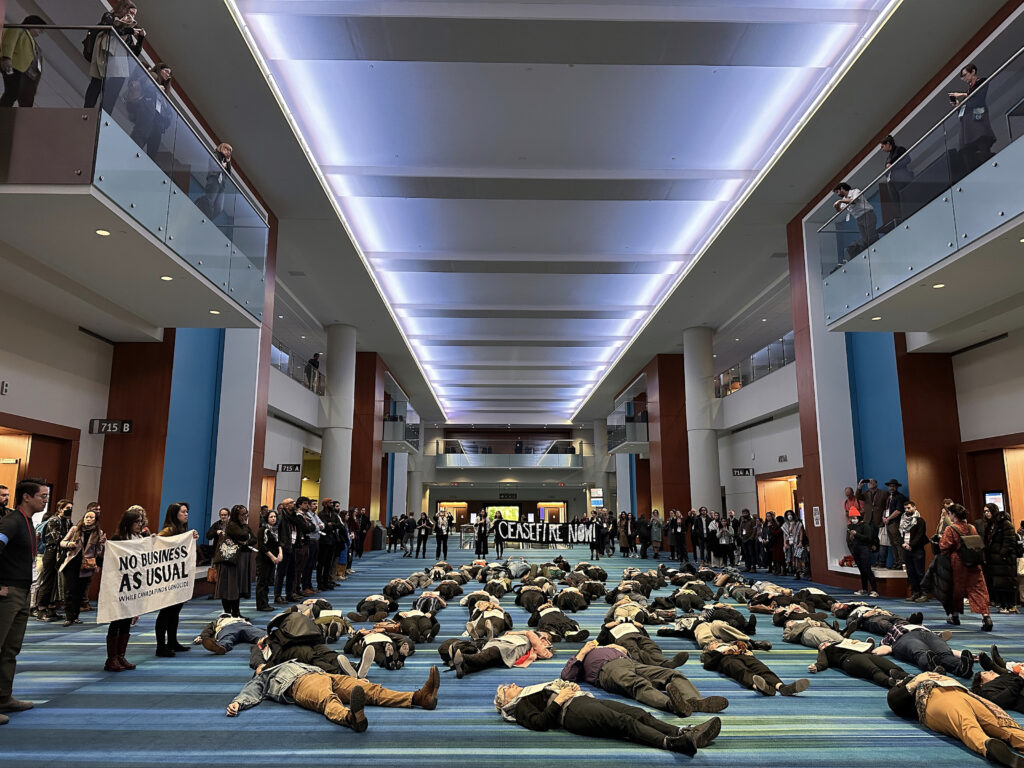
SAPIENS seeks to amplify anthropological insights to build a more just and sustainable world. In line with our vision, as a closing offering for this year, our editorial team has curated selections of anthropologists’ perspectives on one of the most pressing issues of 2023: Palestine, Israel, and the ongoing war on Gaza.
Acknowledging five decades of Palestine’s occupation by Israel, anthropologists have been deeply engaged with these issues as scholars and activists. In July of this year, members of the American Anthropological Association (AAA) voted to endorse a boycott of Israeli academic institutions. The AAA states that the boycott will be lifted only when such institutions “substantially end their complicity in violating Palestinian rights as stipulated in international law.”
Since the current conflict erupted October 7 when Hamas struck Israel, a number of anthropological associations and related academic groups and publications have released statements on Palestine, including the Middle East Section of the AAA and the Association of Middle East Anthropology, the Association of Black Anthropologists, and the academic journal Cultural Anthropology.
These statements collectively denounce Israel’s decadeslong occupation of Palestine, its current assault on Gaza, and the global ripple effects of this violence, which has intensified Islamophobia and antisemitism.
Although total atrocities are unknown, Israel Defense Force soldiers have killed more than 18,000 people in Gaza—mostly women and children—since October 7, when Hamas militants took about 240 hostages and murdered an estimated 1,200 Israelis and migrant workers. As of publication, over 50,000 in Gaza have been injured by Israeli attacks and more than 2 million internally displaced.
Under siege, those remaining in Gaza suffer disease, starvation, dehumanization, terror, and trauma. Analyses by scholars, Jewish organizations, and humanitarian workers accuse the Israeli government of genocide. Many have also cited U.S. institutions as complicit and culpable in Israel’s actions due to their economic support, military aid, and key votes in the United Nations.
Beyond Gaza, in the occupied West Bank and East Jerusalem, Palestinian deaths, arrests, and oppression have increased at the hands of Israeli forces and settlers under the far-right government of Prime Minister Benjamin Netanyahu. Worldwide, those showing ties to or solidarity with Palestinians—or merely adherence to humanitarian laws—have lost their lives, jobs, and rights to assemble and speak freely.
As an anthropology magazine, we place the current war into a longer and broader context of struggles for sovereignty and dignity in the face of racist violence, chronic injustices, and settler colonialism worldwide. We look to Insaniyyat, the Society of Palestinian Anthropologists, which supports scholarly work in and about Palestine in the face of continued Israeli restrictions that have often made ethnographies of Palestine impossible.
We hope the following resources help deepen understandings and inform perspectives.
—The SAPIENS Editorial Team
WORDS FROM GAZA
Since October, members of Insaniyyat have been publishing translated transcripts of communications with friends and loved ones in Palestine for their Voices From Gaza series. The introduction to the collection explains that these intermittent dispatches, published with explicit permission from individuals, speak to overwhelming devastation and death but also to the strength of those in Gaza. They write, “We humbly offer these voices from Gaza under siege that attest to Gazans’ immense suffering but also to their unbounded courage and will to survive.” Insaniyyat also maintains an extensive bibliography of academic publications by contemporary Palestinian anthropologists and anthropologists of Palestine.
THE IMPACTs OF LANGUAGE
The words often used by those in power strip Palestinians of their humanity and history. In this essay for New Lines Magazine, anthropologist Ammara Maqsood and doctoral candidate in anthropology Amandas Ong expose rhetoric that portrays people as animals, treats war as a game, and erases history that precipitated the current violence. Quoting from political speeches, news outlets, and social media, the scholars demonstrate language’s weaponization in the context of Israel-Palestine and other conflicts elsewhere in the world. “While Israel drops white phosphorus bombs in densely populated civilian areas in Gaza and openly admits to airstrikes on ambulances, we continue to be told that these are acts of self-defense by ‘the most moral army in the world,’” they write. [1] [1] On November 4, CNN and other news outlets reported that Israel took responsibility for an ambulance attack.
A SENSE OF VERTIGO
For The Baffler, Dylan Saba, an attorney at Palestine Legal and contributing editor of Jewish Currents, interviewed University of Chicago anthropologist and legal scholar Darryl Li in October. In “Tectonic Shifts,” Saba and Li, who have both been active for years in the Palestinian solidarity movement, offer an informed, wide-ranging conversation about the escalating crisis in Gaza and what it might mean for political struggles in Palestine and beyond.
TEACH-INS ON PALESTINE
Since October 20, the Palestine in Context Project has been organizing weekly teach-ins on issues related to the ongoing war on Gaza. The Gaza in Context collaborative teach-in series is hosted by Jadaliyya and co-organized by numerous organizations. [2] [2] The following are co-organizers: the Arab Studies Institute, Georgetown University’s Center for Contemporary Arab Studies, George Mason University’s Middle East and Islamic Studies Program, Rutgers University’s Center for Middle Eastern Studies, Birzeit University Museum, Harvard University’s Center for Middle Eastern Studies, Brown University’s Center for Middle East Studies, University of Chicago’s Center for Contemporary Theory, Brown University’s New Directions in Palestinian Studies, Georgetown University’s Center for Muslim-Christian Understanding, Simon Fraser University’s Centre for Comparative Muslim Studies, Georgetown University-Qatar, American University of Cairo’s Alternative Policy Studies, Middle East Studies Association’s Global Academy, University of Chicago’s Center for Middle Eastern Studies, CUNY’s Middle East and Middle Eastern American Center, University of Illinois Chicago’s Arab American Cultural Center, George Mason University’s AbuSulayman’s Center for Global Islamic Studies, University of Illinois Chicago’s Critical Middle East Studies Working Group, George Washington University’s Institute for Middle East Studies, Columbia University’s Center for Palestine Studies, New York University’s Hagop Kevorkian Center for Near Eastern Studies. These online conversations, which are academic in approach and open to the public, have brought together anthropologists and other scholars and activists to shed light on topics such as media, campus activism, international law, colonial narratives, the war on children in Gaza, antisemitism and anti-Zionism, and more. The project builds on the 2016 documentary Gaza in Context, which was released alongside a teaching guide and a bibliography of over 100 resources.
MADE IN ISRAEL: 21ST-CENTURY BORDER CONTROL
Jeff Halper, an Israeli American anthropologist based in Jerusalem, leads the Israeli Committee Against House Demolitions. In this interview with The Border Chronicle editor Todd Miller, Halper discusses population control measures that Israel has developed in Palestine and exported worldwide. Drawing from his book War Against the People: Israel, the Palestinians, and Global Pacification, Halper explains how Israeli technologies and strategies for homeland security help fortify borders, including the U.S.-Mexico border, to create a Global North fortress. Filling this niche in international politics, which is fundamentally transactional and capitalist, allows Israel to “get away with it”—meaning the ongoing colonization of Palestine, Halper says.
JUSTIFYING GENOCIDE
Muhannad Ayyash, a sociologist based in Canada who spoke at the 2023 American Anthropological Association and Canadian Anthropology Society meeting, states that Israel is engaging in genocide of the Palestinian people. His op-ed in Al Jazeera explores how U.S. and European institutions have provided Israel with the material and infrastructural capabilities to commit genocide—and the means to conceal its actions. Why? He argues it is because erasing Palestine is part of Western imperialism, which began in the 15th century and has brutalized Indigenous peoples of the Americas, Africa, Australia, and elsewhere. “The imperial West is hell-bent on maintaining its supremacy,” says Ayyash. He calls on people worldwide to withdraw from this system.
BEYOND ACADEMIC ANTHROPOLOGY
In the academic journal American Ethnologist, Lara Deeb, the chair of anthropology at Scripps College, and Jessica Winegar, a professor of anthropology at Northwestern University, discuss how American Anthropological Association members passed a resolution to boycott Israeli academic institutions in July. The resolution grew out of decades of political activism in solidarity with the Palestinian struggle for liberation and was bolstered by scholarly work on settler colonialism, occupation, apartheid, and much more. Deeb and Winegar cite Palestinian anthropologist Rami Salameh in calling for anthropologists to continue supporting struggles for justice worldwide: “To stand for the promise of justice is a moral and ethical stance intimately linked to our discipline. Linking our discipline to justice gives Palestinians and oppressed subjects of colonialism, patriarchy, homophobia and xenophobia, and capitalism hope for a possible just world.”
Editors’ note: We will continue to update this article to include related contributions in SAPIENS as they are published.





